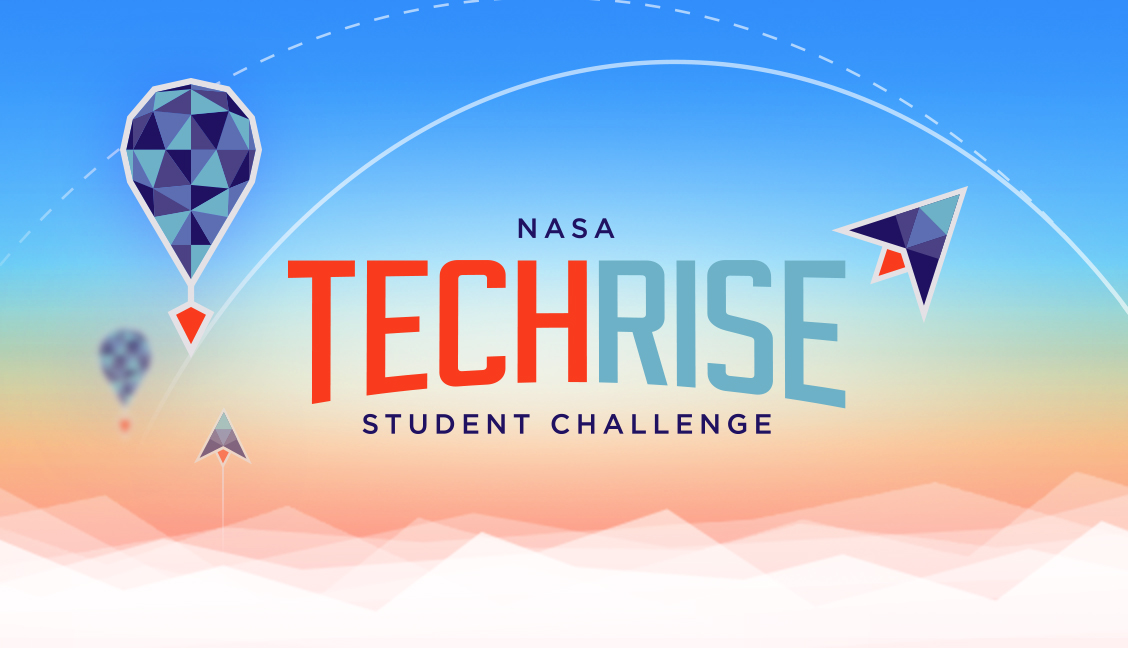
NASA TechRise Winners Announced
NASA selected 60 winning teams for the second TechRise Student Challenge, a nationwide contest designed to engage students in technology, science, and space exploration. These teams will work together to build science and technology experiments in preparation for a suborbital flight test.
The challenge was open to students in grades six through 12 at American public, private, or charter schools, including those in U.S. territories. This year, winning teams include about 500 students representing 38 states and territories.
“NASA‘s missions of tomorrow are sparked by the accomplishments of the Artemis Generation today in classrooms across America,” said NASA Administrator Bill Nelson. “Through opportunities like the TechRise Student Challenge, young people are deepening their passion in science and technology, preparing to be the future innovators and pioneers who help humanity soar to new heights and unlock more secrets of the universe.”
A full list of winning teams is available on the TechRise website.
Each team will receive $1,500 to build their experiments and an assigned spot to test it on one of two NASA-sponsored high-altitude balloon flights scheduled for this summer.
Winning proposals address a wide variety of science and technology challenges, including evaluating the effects of climate change; protecting humans, electronics, and various materials against radiation; testing machine learning and computing techniques for space technology; and supporting human health on long-duration space missions.
Led by NASA‘s Flight Opportunities program and administered by Future Engineers, TechRise offers students both hands-on experience with the payload build and flight test process, as well as the chance to contribute to NASA‘s mission of exploring space and studying our planet. The Flight Opportunities program, part of NASA‘s Space Technology Mission Directorate (STMD), rapidly demonstrates technologies for space exploration, discovery, and the expansion of space commerce. Winning teams will design, build, and prepare their payloads for flight, receiving close mentorship and support along the way. The challenge is designed to inspire a deeper understanding of Earth‘s atmosphere, surface features, and climate, as well as space exploration, coding, electronics, and the value of test data.
Student experiments will be tested via a high-altitude balloon flight from one of two commercial providers: Aerostar of Sioux Falls, South Dakota or World View based in Tucson, Arizona. On flight day, the payloads will gather data as the balloons launch and ascend to an altitude of approximately 70,000 feet, where they will float for at least four hours. During flight, they will be exposed to the unique thermal and atmospheric environment of the stratosphere, providing conditions for student experiments that cannot be replicated in ground-based tests. The high-altitude balloons will simultaneously allow payloads to observe the surface below them and collect data on land features such as vegetation, crops, urban centers, and bodies of water.
“I am extremely proud of these students. They worked hard and spent every second of free time they had in class researching and perfecting the design they turned in,” said Cheyenne Moses, a teacher at Hartselle Jr. High School in Hartselle, Alabama. “Seeing my students‘ hard work come to life and the excitement I know they will have is what excites me the most. They are absolutely fascinated by the idea of a balloon flying that high!”
A group of approximately 275 volunteer judges with expertise in engineering, space, and Earth science reviewed entries and selected winners from across the nation. Proposal evaluation criteria included the originality of their experiment idea, its impact on education and/or society, feasibility to build the experiment in the allotted timeframe and budget, as well as the quality of the build plan. Judging was designed to encourage equitable student participation and geographic representation, and scoring included additional points for Title I eligible schools.
TechRise is one of many NASA prizes and challenges that offer opportunities to participate in America‘s space program. The latest NASA TechRise Student Challenge news and updates on the student teams‘ progress will be available on the TechRise website. The NASA Tournament Lab, part of STMD‘s Prizes, Challenges, and Crowdsourcing program, supports TechRise.
Contact us
Thank you for your interest in contacting Future Engineers. We look forward to connecting with you!
General Inquiries
support@futureengineers.orgSponsorship Inquiries
sponsor@futureengineers.org
